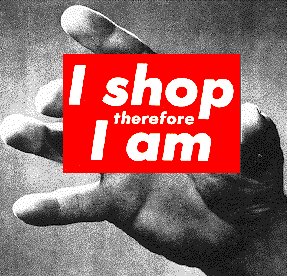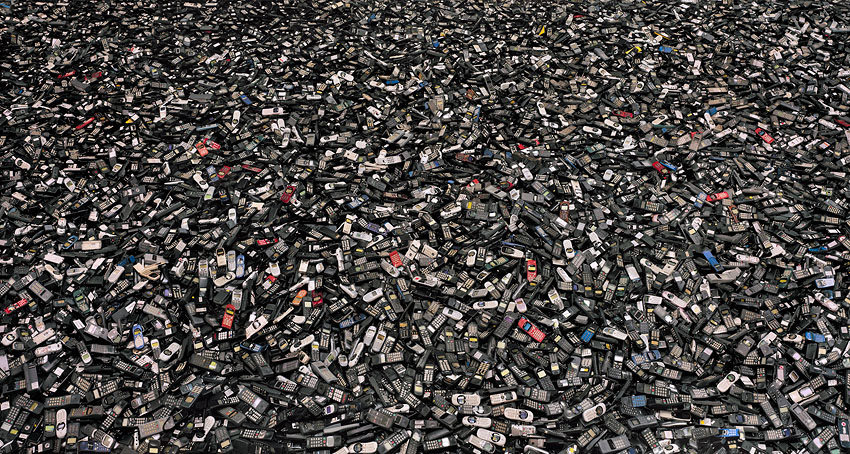by Esther Vivas
January 6, 2012
“A woman, desperate to get the best offers in the Wal-Mart sale, discharged pepper-spray at people in order to drive them away from the items she wanted.” This could be a scene from a Pedro Almodovar film had it not been witnessed in real life. On the November 25, 2011 such a story appeared in the Los Angeles Times.
With that in mind, we could suggest that the large shopping centers, especially during sales, place prominent warning signs, parodying the Health Authorities’: “Consuming seriously harms your health.” Moreover, irrational, superfluous, and unnecessary consumerism, as promoted by the capitalist system, not only can affect our health–in such an unexpected and direct manner as a “pepper-spray assault”–but above all, affects the health of the planet.
Just to give an example, if everyone consumed like the average American we would need five planet earths to feed such voracity, but alas we only have one and it’s not big enough. We have become too used to living mindless of the fact that the world we inhabit is finite and capitalism has taken good care of that. Progress is accredited to the consumer society but progress towards what, is the question we must ask ourselves, and for whom, and at what cost and who pays.

The latest siren’s song insists that buying will make us happier, but such happiness never shows, no matter what we spend. “Splash out and drown your sorrows,” is capitalism’s slogan, but our dissatisfaction never ceases. Happiness does not come instantly, bagged with a receipt.
We are told to buy sunglasses by Chanel, a Tous teddy bear or Mango jeans as the only means to feel like Claudia Schiffer, Jennifer Lopez or Gerard Piqué. The days of selling just a product have passed into history. Now, as all good schools of marketing teach, they sell us the celebrity and package with the promise of health, money and love. And we pay, pleased as Punch, the price of our dream.
They sell us the incidental as indispensable and the trivial as life or death, and create for us a whole range of spurious needs. A new wardrobe every season, a cell phone of the latest generation, a plasma TV, and so on, and so on… With a consequent pile of technological, electronic, and sartorial waste that “vanishes” once out the door, going to swell the scrap heaps of the Global South, polluting water and land, and threatening community health.

Where cell phones go to die. Photo: Chris Jordan
As if that wasn’t enough, the same system gives us planned obsolescence, expiration dates for all that we buy–so that after X amount of time, the product fails and one has to buy another. What good is an everlasting light bulb, stockings without runs, or a computer that does not stop working? All bad business. Here, only he who sells is the winner.
Perhaps the time is ripe to instill the idea that we could “live better with less” and to examine the complicity desired of us, with a system imposed upon us that does not benefit us. We are told that there is a consumer society because we love to consume, but–aside from our own individual responsibility–no one, to my knowledge, chose this society in which we happen to live, or at least I myself was never asked. It’s just that, from diapers until dentures we are bombarded with “buy… buy… buy” and their message continues today, “we will leave this crisis through consuming.” I ask myself, are we “consuming” or “being consumed”?
Esther Vivas is a member of Izquierda Anticapitalista in the Spanish State and is author of “Del campo al plato.” This article originally appeared on her website.
Further reading:
- “Anti-capitalism and climate justice,” Esther Vivas
- “Foundations of an ecosocialist strategy,” Daniel Tanuro
- “Fourteen Days that Burned the World,” Quincy Saul (report from COP17)
- Climate and Capitalism (online journal)
